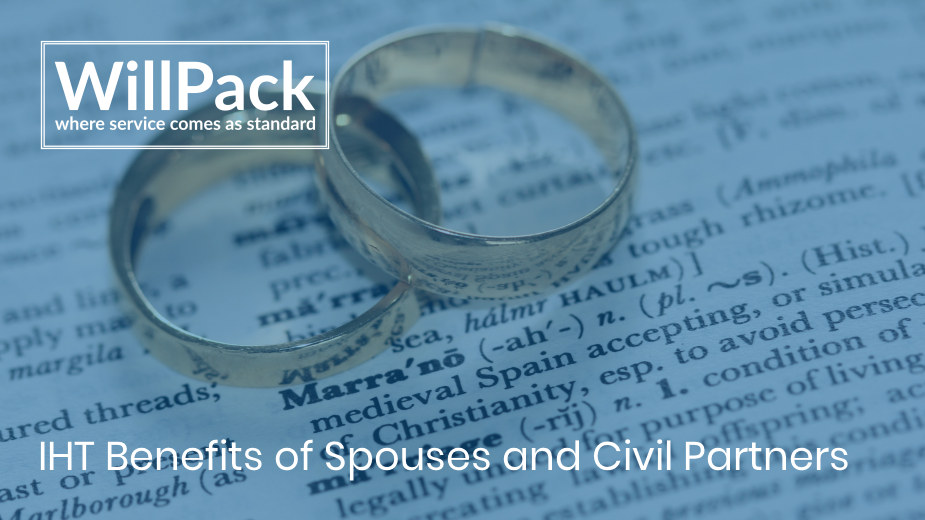Spouses and civil partners receive a number of IHT benefits over unmarried couples, both in lifetime and on death. These various reliefs and exemptions also open up many more IHT effective methods of planning in their wills. This article will provide an overview of these benefits.
Gifts in Anticipation of Marriage
If a client knows someone who is getting married and wishes to make gifts to reduce their estate for IHT purposes, they could consider gifts made in consideration of a marriage or civil partnership. Gifts that fall into this allowance will not be considered for IHT purposes.
Whether a gift qualifies will depend on the amount given and relationship between the gift giver and the receiver:
- A parent can give up to £5000 in total, inheritance tax, free to a child. A child for this purpose can include adopted and stepchildren.
- Either party to the marriage can give up to £2500 to the other.
- Remoter ancestors (e.g. grandparents and great grandparents) can give up to £2500 to a remoter descendant.
- For any other relationship, a person can give up to £1000.
These gifts can be made to either party of the marriage, but not both.
Three further conditions must also be met:
- The gift must be made either on the marriage/civil partnership or slightly before.
- The gift must be conditional on the marriage/civil partnership taking place.
- It is made for the purpose of, or with a view to encouraging or facilitating, the marriage/civil partnership.
Spousal Exemption
Gifts to a person’s spouse or civil partner either during lifetime or on their death will benefit from the spousal exemption. This means that those gifts are always free of any IHT and are not taxable as part of the giver’s estate.
There is also a spousal exemption for capital gains tax, so any transfers to a spouse or civil partner will be free of CGT.
Transferable NRB
Since 9th October 2007, if a deceased spouse/civil partner did not use their NRB on their death, the unused NRB can be claimed when their surviving spouse/civil partner dies. The personal representatives of the survivor will need to apply to have the unused NRB transferred within two years of the survivor’s death.
The amount available to be transferred is calculated on the basis of what percentage was used. That percentage is then applied to the value of the NRB at the date of second death.
Full NRB can only be transferred where the first spouse’s death occurred on or after 13 March 1975. There may be limited transferable NRB where first death occurred between 21 March 1972 and 12 March 1975. There will be no transferable NRB available where first death was before 21 March 1972. These limitations are due to changes in the tax regime in previous years.
For civil partners, first death must have occurred after 5 December 2005 when the Civil Partnership Act 2004 came into effect.
RNRB
Married couples and civil partners have further options when it comes to RNRB planning than unmarried couples.
If RNRB is not used on the death of the first spouse/civil partner, it is available to be transferred similar to how the NRB is transferred. This would apply even if their spouse/civil partner died before 6th April 2017 or even if the late spouse/civil partner did not own a property. Unused RNRB is not transferable between unmarried couples.
The descendants of a spouse or civil partner are treated for RNRB purposes as if they are also descendants of the testator. The children of an unmarried partner are not.


 © Trust Wills & Probate Limited t/a WillPack. All rights reserved.
© Trust Wills & Probate Limited t/a WillPack. All rights reserved.
You must be logged in to post a comment.